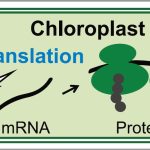Thiago Alexandre Moraes: Plant Physiology First Author

 Thiago Alexandre Moraes, first author of “The lhy cca1 elf3 mutant paces starch mobilization to dawn despite severely disrupted circadian clock function“
Thiago Alexandre Moraes, first author of “The lhy cca1 elf3 mutant paces starch mobilization to dawn despite severely disrupted circadian clock function“
Current Position: Postdoctoral Researcher, Crop Science Centre, Cambridge, UK
Education: PhD in Molecular Plant Physiology studying the role of the circadian clock in the regulation of starch turnover in Arabidopsis, Max Planck Institute of Molecular Plant Physiology (MPIMP), Potsdam-Golm, Germany. M.S. in Technology and Innovation in Information Engineering, State University of Campinas (UNICAMP), São Paulo, Brazil.
Non-scientific Interests: computers, programming, games, aircrafts, politics
Brief bio: I am an early career scientist who trained as a technologist in environmental sanitation. This training gave me a strong background in ecology and toxicology as well as in mathematics and programming. I carried out my PhD and my first postdoc at the Max Planck Institute of Molecular Plants Physiology in Potsdam supervised by Prof. Dr. Dr. h.c. Mark Stitt. There I gained expertise in genetic manipulation of plants, in the use of precise growth conditions, in quantitative measurement of metabolite levels and transcript abundance and in statistical analysis of large data sets. My research adds to the existing evidence that plants prioritize carbon allocation to reserves like starch when less carbon is available, suggests that regulation of starch turnover is driven by starch derived signals and is at least in part due to regulation of growth. Currently I am a postdoc at the Crop Science Centre (University of Cambridge), researching on the organogenesis of root nodules and the engineering of barley plants under the supervision of Prof. Dr. Giles Oldroyd. Our group is part of larger collaboration which aims to engineer nitrogen-fixing root nodulation into cereals to sustainably enhance production for small-holder farmers.


